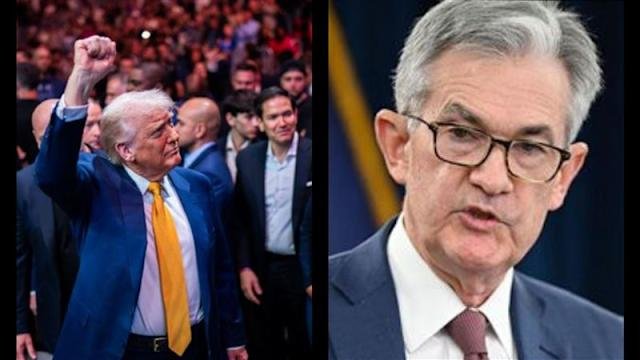
While recent media coverage has centered around President Donald Trump’s discussions with Federal Reserve Chair Jerome Powell on interest rate policies, national security and economic experts warn that the real threat facing the United States lies not within its domestic policy debates—but in China's deepening economic infiltration.
Though President Trump recently stated he has “no intention of firing” Powell following speculation over interest rate disagreements, analysts stress that such discourse distracts from a larger concern: China’s systematic efforts to undermine American economic sovereignty.
For years, China has manipulated its currency, subsidized state-owned enterprises, and flooded international markets with underpriced goods. This has severely impacted U.S. manufacturing and technology sectors. The Wall Street Journal and other reports have highlighted how Beijing’s aggressive state-backed economic model threatens fair global competition and aims to dismantle America's technological edge.
China’s opaque financial practices and growing debt crisis—especially in real estate and municipal sectors—pose indirect but significant pressure on U.S. monetary policy. As global investors retreat from China’s unstable markets, the Federal Reserve faces increased demands to maintain domestic economic stability.
President Trump’s tariffs on Chinese imports are not merely economic tools—they’re strategic safeguards. While some critics frame these moves as protectionist, the administration views them as critical responses to China’s unfair trade practices and intellectual property theft.
Experts argue that disunity between the Federal Reserve and executive leadership may weaken the overall U.S. stance against China, allowing Beijing to regain momentum in reshaping global economic dynamics.
According to international economist Alicia Garcia-Herrero, failure to counteract China’s dominance could lead to over-dependence on Chinese supply chains, loss of innovation control, and long-term erosion of U.S. economic influence.
“Without a firm and coordinated response, China will continue using economic tools as instruments of geopolitical power,” Garcia-Herrero said. “This is not just about tariffs—it’s about securing America's future.”
While market observers remain focused on intra-government tensions, the United States must shift attention to China’s broader ambitions. From tech dominance to global trade leverage, Beijing’s strategies are already reshaping the rules of engagement.
To counter this, the U.S. must enhance interagency coordination, deepen industrial partnerships with allies, and implement institutional safeguards to resist Beijing’s expansionist economic tactics.
Only through proactive and united efforts can America preserve free and fair trade principles, ensure long-term economic resilience, and guard against the encroachment of its most strategic rival.